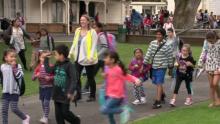Exploring Collaboration in Action: Kahukura Community of Practice
ERO was approached by principals from Kahukura to document and evaluate their community of practice in Christchurch. This report identifies what is working well for this community of practice, areas where they might consider further enhancements, and lessons and insights into practices which could be shared with others.










